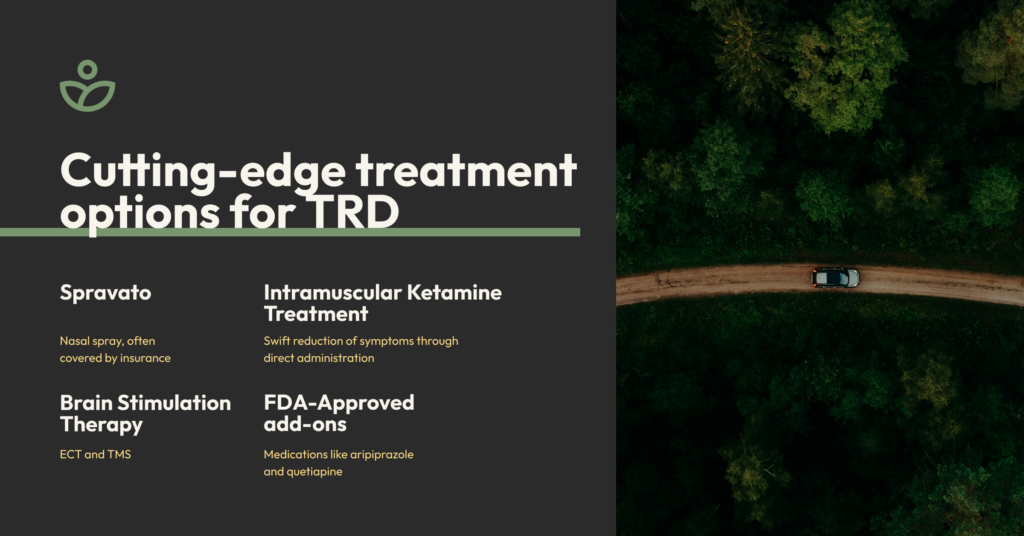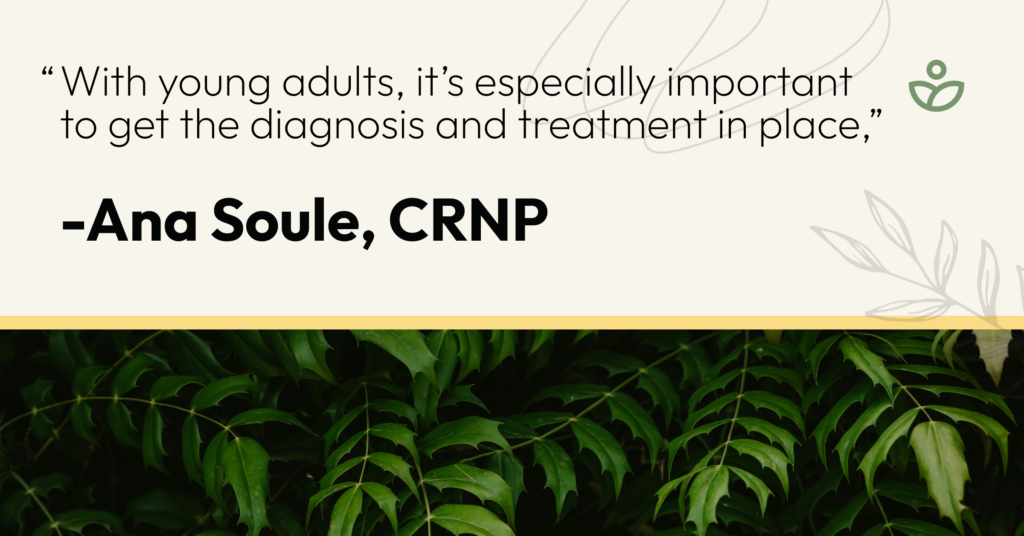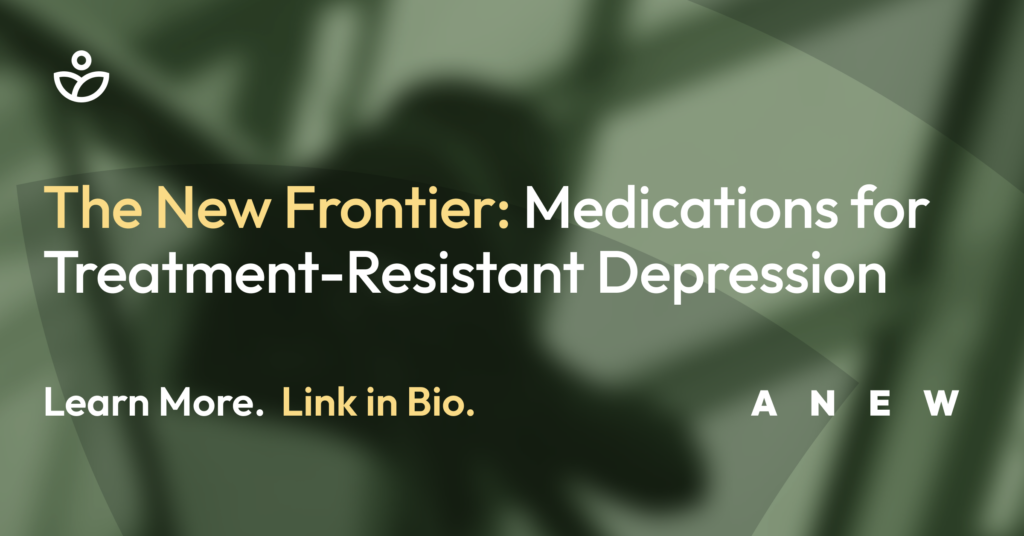Treatment-resistant depression medication is changing the landscape of mental health care, offering hope to those struggling with persistent symptoms of major depressive disorder. For many, traditional treatments like antidepressants can be frustratingly slow or even ineffective, leaving individuals searching for quicker, more reliable solutions.
Here’s a look at some promising options for treatment-resistant depression medication:
- Spravato (esketamine nasal spray): Offers rapid relief and is often covered by insurance.
- Intramuscular (IM) Ketamine Therapy: Provides swift symptom reduction.
- Brain Stimulation Therapies: Such as Transcranial Magnetic Stimulation (TMS) and Electroconvulsive Therapy (ECT).
- FDA-approved add-ons: Including medications like aripiprazole, brexpiprazole, and quetiapine.
Explore more in the sections that follow about these cutting-edge treatments.

Understanding Treatment-Resistant Depression
Why Antidepressants May Not Work
85% of people don’t respond to conventional mental health therapies. That’s why we specialize in alternatives like Ketamine therapies and TMS, so you don’t have to search for more options if you’re not seeing progress.
Treatment-resistant depression is a challenging condition where traditional antidepressants fail to alleviate symptoms. This can be frustrating for those affected, especially young adults, who are often in a critical phase of life. The symptoms include persistent sadness, fatigue, and a lack of interest in activities, affecting their daily function and quality of life.
Prevalence is significant, with about 30% of people diagnosed with major depressive disorder experiencing treatment-resistant depression. This issue is particularly concerning among young adults. Ana Soule, a psychiatric nurse practitioner at John Hopkins, emphasizes the importance of early diagnosis and treatment for this group. She notes that depressive disorders often emerge in the late teens to early 20s, a pivotal time for personal development.

The first treatment plan for most individuals experiencing depressive symptoms is usually traditional antidepressants. But for many, oral antidepressants fail to bring relief.
Why might antidepressants fail? Several factors can contribute:
- Medication Adherence: Up to half of patients do not take their medications as prescribed. This can prevent reaching the therapeutic threshold, where the medication effectively alleviates symptoms
- Therapeutic Threshold: It can take 4-12 weeks for antidepressants to reach their full effect. This can be a long time to wait for relief when depressive symptoms are severe. Many patients may discontinue use prematurely, thinking the medication is ineffective.
- Genetics: Variations in how individuals metabolize medications can impact effectiveness. Genetic testing can help tailor treatments to improve outcomes.
Understanding these factors is vital in managing treatment-resistant depression and exploring effective alternatives like Spravato and IM ketamine therapy. These options offer rapid relief and are gaining traction as viable solutions for those not responding to traditional treatments.
Searching for the best ketamine clinic in Utah? Anew Therapy offers expert care and proven results. Schedule your free intake appointment today.
Top Medications for Treatment-Resistant Depression
When dealing with treatment-resistant depression, finding the right medication can feel like a daunting task. Fortunately, there are several FDA-approved medications that offer hope for those who haven’t found relief with traditional treatments.
FDA-Approved Add-On Therapies
For those whose symptoms persist despite taking antidepressants, add-on therapies can be a game-changer. These medications are used alongside existing treatments to improve their effectiveness:
- Aripiprazole (Abilify), brexpiprazole (Rexulti), and quetiapine (Seroquel XR) are popular choices. These medications work by targeting specific neurotransmitters in the brain, helping to stabilize mood and improve symptoms. They are often prescribed when an initial treatment isn’t enough.
Ketamine and Esketamine
One of the most exciting developments in treating treatment-resistant depression is the use of ketamine and its derivative, esketamine. These medications act on NMDA receptors, a different pathway than traditional antidepressants, providing rapid symptom relief, and have quickly become the “gold standard” for treatment-resistant depression
- Ketamine Treatment: Administered under careful medical supervision, ketamine can quickly alleviate symptoms of depression. Studies from UConn Health and Johns Hopkins have shown its effectiveness, especially in cases where other treatments have failed.
- Esketamine Nasal Spray (Spravato): This is a newer option that offers the benefits of ketamine in a more convenient form. It’s often covered by insurance, making it more accessible. Spravato works rapidly, sometimes within hours, and is particularly beneficial for those who need quick relief from severe symptoms.
In clinical trials, patients undergoing esketamine nasal spray therapy experienced response rates of 50% to 70% within the first two weeks. This is considerably higher than the 30% to 40% response rates typically seen with traditional antidepressants. Additionally, remission rates (where symptoms of depression completely disappear) were also higher with esketamine.
Other Medication Options
If add-on therapies or ketamine treatments aren’t suitable, there are other medications to consider:
- Selective Serotonin Reuptake Inhibitors (SSRIs): These are often the first line of treatment for depression. Options include fluoxetine (Prozac), sertraline (Zoloft), paroxetine (Paxil), citalopram (Celexa), and escitalopram (Lexapro). While they may not work for everyone, they are effective for many and have a well-established safety profile.
- NMDA-Receptor Antagonists: Beyond ketamine, other NMDA-receptor antagonists are being explored for their potential in treating depression, offering a new frontier in medication strategies.
Finding the right treatment-resistant depression medication can take time, but with options like Spravato and ketamine therapy, there is hope for relief. These treatments are paving the way for more effective management of this challenging condition.
Next, we’ll explore alternative and advanced treatments, including brain stimulation techniques and emerging therapies, which offer additional avenues for those seeking relief from treatment-resistant depression.

Alternative and Advanced Treatments
When traditional medications fall short, alternative and advanced treatments offer new hope for those battling treatment-resistant depression.
Brain Stimulation Techniques
Transcranial Magnetic Stimulation (TMS) is a non-invasive option that uses magnetic fields to stimulate nerve cells in the brain. It’s painless and focuses on areas involved in mood regulation. TMS is gaining popularity because it doesn’t require anesthesia and has fewer side effects compared to ECT.
Psychotherapy and Psychiatry: Innovative Approaches to Mental Health
Ketamine-Assisted Psychotherapy
Ketamine-assisted psychotherapy (KAP) combines the transformative potential of ketamine with guided therapy sessions. In carefully controlled doses, ketamine enhances neuroplasticity, fostering new connections in the brain that can accelerate emotional healing. This synergy allows patients to explore deeper insights and achieve breakthroughs that may not be as easily accessible with traditional therapy alone.
Integrative Psychiatry
Integrative psychiatry takes a holistic approach by blending conventional medical treatments with complementary therapies. This approach supports patients on both psychological and emotional levels, helping them process their experiences and fully integrate the benefits of medications like ketamine or other alternative treatments for depression. By focusing on the whole person, integrative psychiatry promotes healing that addresses both the mind and body.
Expanding the Horizons of Treatment
These advanced and alternative therapies are revolutionizing the way we approach treatment-resistant depression. For individuals who have tried traditional methods without success, these options offer a renewed sense of hope and the possibility of meaningful relief. Through innovative strategies like ketamine-assisted psychotherapy and integrative psychiatry, patients can explore new pathways to recovery and reclaim a sense of balance and well-being.
Conclusion
Navigating the challenges of treatment-resistant depression can be daunting, but the landscape of available treatments is expanding, offering new avenues for relief. At Anew Therapy Utah, we emphasize the importance of personalized care, recognizing that each individual’s journey with depression is unique.
With a variety of treatment options available, finding the right approach may take time, but it is crucial not to lose hope. From FDA-approved medications like aripiprazole and brexpiprazole to cutting-edge treatments such as Spravato (esketamine nasal spray) and ketamine therapy, there are effective solutions custom to meet diverse needs.
Our team at Anew Therapy Utah is dedicated to providing holistic, patient-centric care. We believe in the transformative power of treatments like ketamine therapy and Spravato, which offers rapid symptom relief and is often covered by insurance. This, combined with our commitment to a comprehensive and supportive treatment environment, ensures that our patients receive the best possible care.
For those seeking relief from the burdens of depression, know that you are not alone. With the right support and treatment plan, there is hope for a brighter future. If you are ready to explore ketamine therapy or Spravato as part of your treatment plan, visit our services page to learn more about how we can help you on your journey to improved mental health.The path to healing is within reach, and at Anew Therapy Utah, we are here to support you every step of the way.


